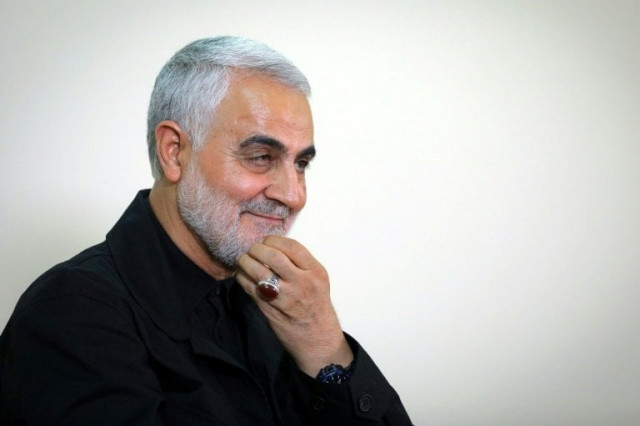Iran’s options after Soleimani’s assassination
Iran has vowed a suitable retaliation - what shape would it take remains unknown

Qaseem Soleimani. PHOTO: AFP
The attack on the Iranian General in Iraq clearly violates international law and calls for a universal condemnation of the act. It was also in contravention of US systems because the Congress was not taken into confidence in the planning and execution of a top military commander of another country on Iraqi soil.
Iran has vowed a suitable retaliation. What shape would it take remains unknown.
Taking no action would go against the grain of the regime’s credentials and its philosophy when formidable economic challenges confront the country. The regime will likely use the attack to unite a nation that is badly in need of a new vision that corresponds with its aspirations for economic prosperity.
But obviously Iran is not in a position to confront the US militarily. Even closing the Strait of Hormuz would not be a desirable option because of the consequences it would carry. Launching attacks on US installations in Iraq would be a possibility. But targeting US personnel may not be easy because of the extreme security precautions taken by the US in wake of Soleimani’s killing. Such attacks could also happen in Lebanon where ideal conditions exist with the near breakdown of governance systems and political instability.
Hezbollah’s assaults on Israeli targets and in Lebanon itself would also be in the works. But the question is: in the event of an Iranian attack on US personnel or installations, will the US constrain its response or will it retaliate as quickly? Any miscalculation could lead to a wider escalation.
Israel has warned against any action against it. But Hezbollah might act to not let this go easily, complicating the whole picture.
Then there is a president in Washington who engineered the whole fiasco for political leverage at a time of deep domestic troubles. Facing an impeachment trial, President Trump used this action to convey an image to the majority white US electorate that he alone can protect the nation’s vital interests. He would seek to create an image of a leader who is not scared of taking tough decisions. He anticipated for this to deepen his support amongst the conservative voters and a population wanting a leader that can make difficult decisions. In the process he would gain politically as the election campaign gathers speed.
An escalation could cause oil prices to shoot up generate a severe backlash against the US in the region. This would not go down well with the Arab monarchies. In that case there would be a strong anti- Iranian sentiment particularly in Syria, Iraq, Bahrain, Yemen and Lebanon. This could cause sectarian trouble adding another ominous dimension to an already destabilised region.
While the US would watch from the sidelines the two principal powers, Iran and Saudi Arabia, would be in a confrontation for hegemony, power and resources in the Gulf. The only real beneficiary would be the Zionist state of Israel.
Deliberately or unwittingly, President Trump has sown the seeds of discord and conflict in the Middle East. The US would be a beneficiary also. Because its arms factories would continue to run full speed to sell billions of dollars worth of weapons to Saudi Arabia and the UAE.
History’s lesson should not be forgotten. Any strategic miscalculation motivated by an incorrect perception or partisan political designs would boomerang. The instability of the region could prove costly for mankind. Before the region plunges into an irretrievable fiasco, the UN must explore all possible venues to douse the flames and restore sanity by urging restraint and pressure the US to stop further strikes on Iraqi militias. Any Iranian retaliation must be very limited and should not be allowed to create a climate for a wider war.
Published in The Express Tribune, January 5th, 2020.
Like Opinion & Editorial on Facebook, follow @ETOpEd on Twitter to receive all updates on all our daily pieces.













COMMENTS
Comments are moderated and generally will be posted if they are on-topic and not abusive.
For more information, please see our Comments FAQ